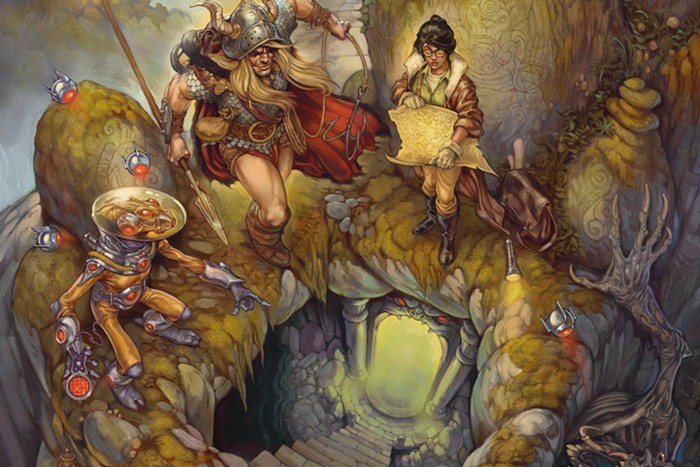Homo Unius Libri
In the poem "The Sinking, The Irretrievable," a team of ocean divers visits the scene of a shipwreck. Laden with data-collecting instruments, the divers make their descent--a descent into the ocean and "a descent into the past"--with the expectation to reconstruct the disaster, or make sense of it. (That is the natural expectation: "the landlocked consider the lost/as simply the uncharted.") But the wreckage does not exist in history; it exists in the present. Its hull is crowded with "glasses never/quite tipped, filled and floating," which suggest ghosts of the dead, but as a structure the wreckage is animated with the life of the sea. It is "a chandeliered grave of coral," a "castle irretrievable/where softly, geology begins." It is living. It is well on its way to becoming something else. It does not resemble the past.
"The Sinking, The Irretrievable" appears early in Frances McCue's slim, cerebral, and deeply affecting book of poetry, The Stenographer's Breakfast (1992), which I mention this week because elsewhere in this issue is a lengthy and relentless dissection of Richard Hugo House, where McCue has been the artistic director since 1997. (In that essay, an organizational analysis, I had no room to consider the merits of The Stenographer's Breakfast, which is a stunning achievement, so I am doing so here.)
If The Stenographer's Breakfast can be said to have an anchor, it is a fascination with the facility and futility of data-collecting instruments. It is a book heavy with objects--telescopes, timetables, microscopes, maps, and manuals, as well as the typing machine--all used, naively, to capture information about the nature of the outside world. This is naive because it is impossible: The outside world is entropic, mutable, expansive, self-propagating, and always plunging forward in time with reckless speed. "Everything grows beyond its means," McCue writes on one poem. "I feel misled by chaos," she writes in another.
The stenographer's job, nonetheless, is to collect information, to encode it in phonetic shorthand, and then to translate it into something understandable (i.e., readable). What the stenographer does is a version of what poets do: taking outside information, a chaos of sound and detail, and distilling it into meaningful forms. The practice of stenography demands an openness, a certain reflexive posture, and in that way it is, like writing poetry, deeply intuitive.
McCue's book delineates the tension between the cognitive and visceral--the constant pull between the epistemological and the ontological demands of these occupations. You know you are in talented hands when the focus on a small, specific thing (stenography, an obsolete practice) brings into a view, almost imperceptibly, something much larger: a meditation on the modern dilemma between knowing and being.



















